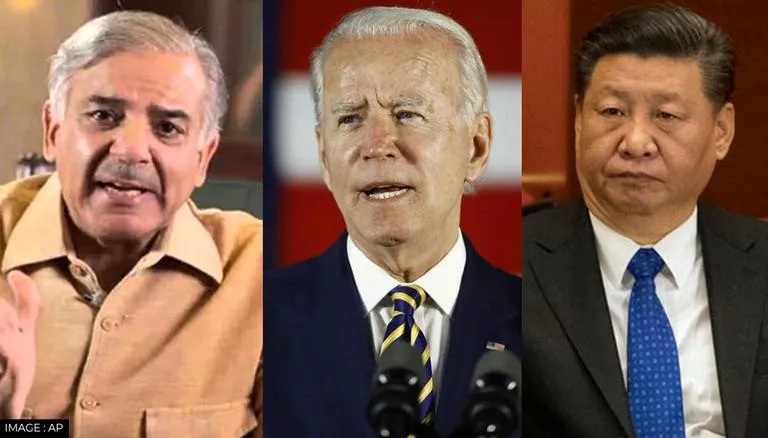
Between mid-2021 and early 2022 Pakistani military inducted two new Chinese weapons systems—Type-54 AP Frigates and J-10 fighter Jets—into the inventory of the Pakistan Navy and Pakistan Air Force respectively. Both these weapons systems were aimed at increasing the interoperability between the Pakistan military and Chinese People’s Liberation Army(PLA). Both weapon systems have increased the reach of the Pakistani military in the Indian ocean.
PLA Navy, according to a report titled, “China’s Indian Ocean ambitions” published by Brooking Institute in June 2020 stated that People’s Liberation Army has been working on broad plan to enhance its inter-operability with regional Navies with specific focus on counter-terrorism operations in Indian Ocean. “This might, for example, involve hostage rescue efforts deployed from PLAN platforms, or partnered operations against terrorist groups which target BRI infrastructure projects” reads the report.
In February 2021, Chinese People Liberation Army-Navy (PLAN) participated for the eighth consecutive time Pakistan led Naval exercises which were primarily aimed at enhancing Pakistan Navy’s interoperability with regional and extra-regional powers. In the last of these exercises in February 2021, US and several NATO navies also participated, -- a fact that dispelled the impression Pakistan Navy is exclusively focused on enhancing cooperation with the Chinese Navy.
On the other hand, the acquisition of J-10 fighter jets from China helps the Pakistani military extend its role in the Indian Ocean. Experts say Pakistan Air Force has long flirted with the idea of acquiring a state-of-the-art modern aircraft that can be deployed in maritime roles. According to experts J-10 is ideally suited for a maritime role, especially in the light of new thinking in the Pakistani Navy to venture deep into Arabian Sea. No existing aircraft in Pakistan’s inventory has the ideal capacity to carry out the maritime role.
In September 2022, the US approved the sale of $450 million worth of spares for Pakistan’s F-16 fleet. The US Administration Foreign Military Sales program provides weapons systems and spares at subsidized rates to military and political allies of the United States of America. Pakistan until the middle of last decade was considered an ally of Washington. However, in recent years the relations had turned cold and military and diplomatic experts have pointed out that the approval of the latest sales package for Pakistan by the US Congress and State Department is an attempt to mend the relations. Pakistani experts believe that the sales package doesn’t offer much in terms of military capabilities. “The money is for maintenance and sustenance of the F-16 fleet. This amount is covered by the Foreign Military Sales program, which allows purchase as per USAF and US allies' rates” said Kaiser Tufail, a former Pakistani pilot of F-16s, “this purchase would not be aimed at any type of upgrade of F-16 capabilities”.
Military experts say that F-16s are the only remaining dependency Pakistan military has over the US supply chain and the US administration would like to maintain that dependency. Some military experts believe that the US move to release spares for Pakistani F-16s are linked to the tussle between great powers—China and United—in the process of capturing Pakistan’s defense market. Three indicators dispel this impression: Firstly, the request for F-16 spares was made by government of Pakistan and was not US initiative. Secondly, US announcement of approval of these sales was accompanied by a clarification that according to their assessment the sales would not change the strategic military balance in South Asia and the sale doesn’t include addition of any combat capabilities in the inventory of PAF. Thirdly, Pakistani Air Force has already started to employ Chinese weapon systems as its frontline fighters, which would in other words mean that insignificant sales of US spares would not change this reality.
Nevertheless, a new Cold War is heating up between the United States and China and not surprisingly Pakistani foreign policy and security establishment has already started to feel the heat of this Cold War. First signs of unease in Pakistan decision making circles over this new cold emerged when Army Chief, General Bajwa repeatedly added cryptic remarks against the Cold War and super power tussles into his speeches during the last two years. In at least one of these speeches, he referred to the rule-based international order as the future of mankind—rule based international order is part of the typical mantra of US and western diplomats.
Then in 2022 within the span of six months the current DG ISI and Army chief visited Washington D.C and held talks with senior officials of US State and Defense Departments. During this period, clear signs emerged that Pakistan’s security establishment was keenly reviving the country's relations with Washington. General Bajwa’s remarks in April 2022 in which he described Washington as a strategic ally was the strongest of these signs.
Does this mean that Pakistan would not become cannon fodder in the new cold war? The grand wishes of our policy makers will hardly play a decisive role in this process. Our economic-financial dependence on super powers and our security paradigm which seeks the involvement of extra-regional power in South Asia to ward off India threat, will hardly allow us to remain aloof from international competition of such a gigantic proportion. In the post-Zia period, our successive governments have consistently approached the IMF and other western international financial institutions for a bailout packages.
The simple fact is that the Pakistani state cannot pay for essential expenditures out of its own financial and economic resources. We are dependent on big powers and financial institutions dominated by them. In such a situation the new Cold War will come to us as a fait accompli.

